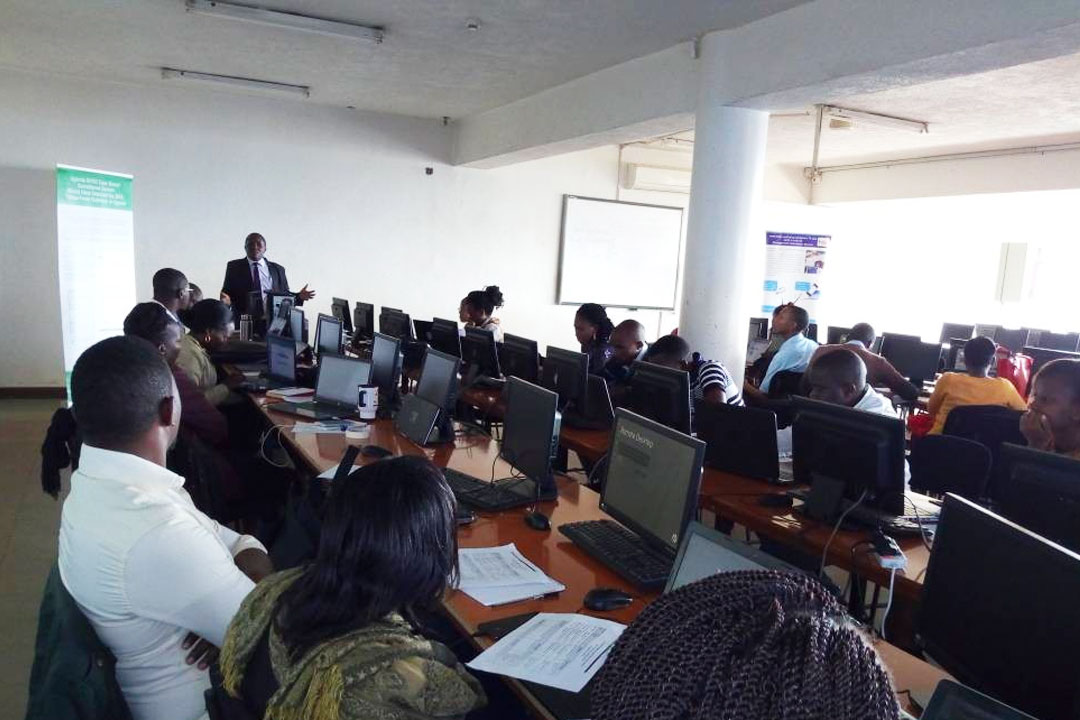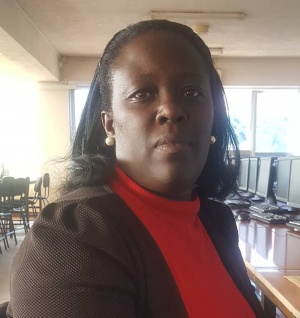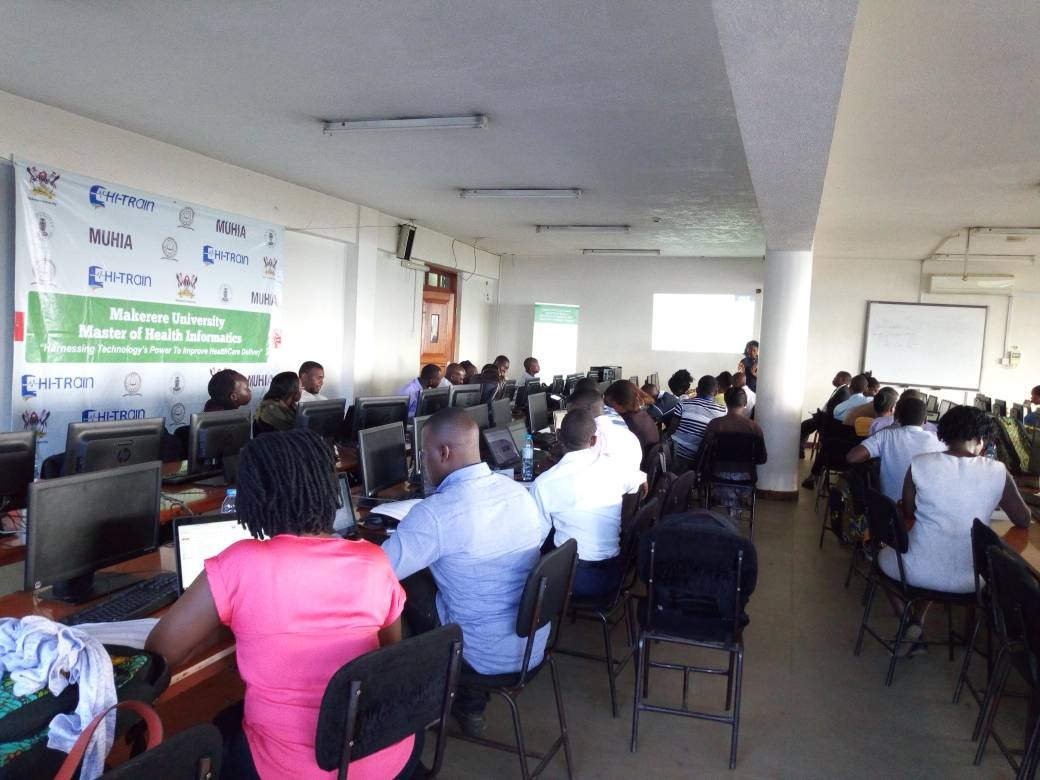
Yesterday, May 23rd, 2018, saw the launch of the Health Informatics boot camp at the College of Computing and Information Systems (CoCIS), Makerere University. The boot camp has students of Masters of Health Informatics (MHI) program from first and second year. The boot camp will essentially focus on imparting practical skills of District Health Information Systems 2 (DHIS2) to the 45 learners. DHIS2 is the system used by the Ministry of Health to track health information in all districts around the country.
The MHI program is run concurrently between The School of Computing and Informatics Technology at CoCIS and MakSPH at the College of Health Sciences (CHS) of Makerere University with the aim of harnessing technology to improve health care delivery.
Vincent Kiberu, the Assistant Program Coordinator of the MHI program said the boot camp is going to be facilitated by the Health and Information Systems Program (HISP) team which was initially started by the University of Oslo in Norway.
“We also expect a team from Moi University and four of them are already here,” Kiberu said, before welcoming Prof Nazarius Mbona Tumwesigye, the Head of Department of Epidemiology and Bio-statistics at the MakSPH, to officially launch the boot camp.
Prof Mbona was excited that the MHI program which he and his team had started dreaming about as far back as 2006 had taken shape. He informed the students that seeing them in such training was a dream come true for him and his team.
“When you have a passion to make a difference, you may not enjoy the journey but you should keep remembering the purpose for which you got that passion,” he said. “If you are tired of the program, keep remembering the purpose of the program. Go back and revisit the objectives of this program,” the professor urged the students.
He explained that this particular hands-on boot camp is supposed to acquaint the learners with skills that should help them to carefully study the current DHSI2 and to improve upon it if need be.
“Maybe you can come up with an application that can quickly send a message on the phone of the Minister of Health, or an application that can send a red signal in the system that equipment or supplies have run out somewhere in Kotido. Getting data from the Ministry of Health can be difficult, sometimes it can be invalid, sometimes it comes late, some of it is insufficient, but this training will give you the opportunity to get solutions and become experts in your field. We are happy about the spirit and love you have shown for this program and I will be very happy to know that this boot camp has helped you to learn as much as possible.”
Attending the same launch was Assoc Prof Agnes Rwashana Semwanga, the Deputy Principal of CoCIS. In her comment, she said, “this boot camp is being run by carefully selected facilitators and is aimed at equipping students with informatics tools to solve health-related challenges in Uganda. Special thanks go to the Norwegian government (NORHED), Hi Train project team, organisers and facilitators from the Ministry of Health, MakSPH and the Makerere University School of Computing and Informatics Technology.”
About her expectations from the boot camp, Hope Argucia, a student of MHI year one remarked that, “I expect to learn more and add to the knowledge I have already acquired theoretically and network with those in the same field.”
Priscilla Balirwa, from the 1st cohort that was trained from Moi University by an organization called Hi Train, said she hopes to interact with implementers of DHIS2 to know and understand exactly how these systems are being implemented out there in real life.
“We are looking at scaling DHSI2 to handle different health sectors given that it’s a national system,” said Chris Balwanaki, a second year MHI student when asked about his expectations from the boot camp.
Introducing the DHIS2 program to the participants, Bridget Magoba, one of the facilitators with HISP said that data on this program is saved in the ‘cloud’ instead of being stored in paper files which can get old, stolen or destroyed by fire.
“HISP is currently used in 60 countries around the world and so far there are 21 countries where entire Ministries of Health have taken on the program,” Magoba informed the elarners.
The last day of the boot camp will be half day. Thereafter, the MHI program will be launched at Makerere University Guest House on May 25th, 2018 and the guest of honour is expected to be, Hon Frank Tumwebaze, the Minister of Information and ICT.



